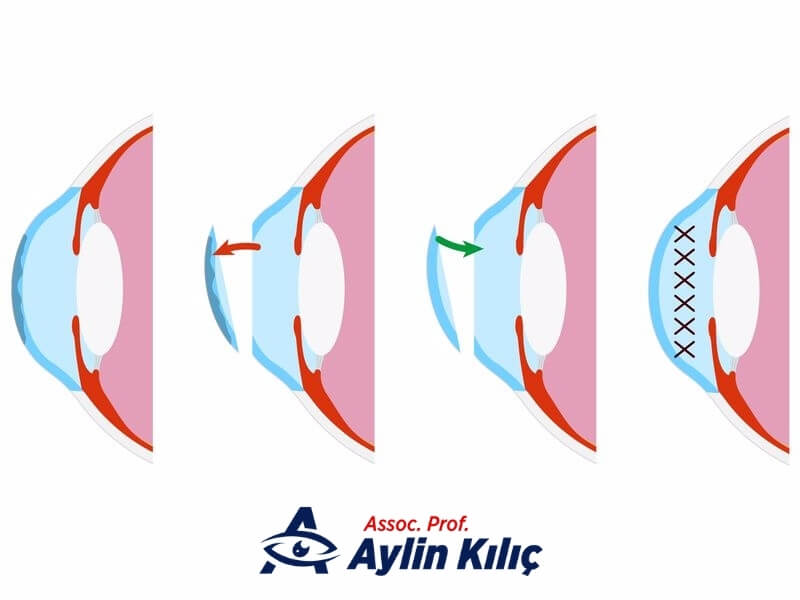Keratoplasty – corneal transplantation, which is popularly referred to as “eye transplantation”, is one of the preferred treatment methods especially in the later stages of keratoconus. In fact, the mention of the word “transplant” can cause uneasiness in patients. In this content, we will try to remove the question mark in patients’ minds and give a clear answer to the question “what is keratoplasty – corneal transplantation?”.
What is Cornea Transplant?
The cornea is a layer located in the front layer of the eye and is of great importance for healthy vision. If the cornea has completely lost its transparency or its shape has deteriorated to the extent that it prevents vision, corneal transplantation may be necessary.
In corneal transplantation, the patient’s corneal tissue, which is misshapen or has completely lost its transparency, is removed and replaced with healthy corneal tissue taken from a cadaver. In this way, the patient regains his/her sight.
Contrary to popular belief, there is no transplantation of the eyeball. In other words, as we said at the beginning, eye transplantation is a misconception.
How Is Cornea Transplantation Performed?
Although the name sounds scary, we can say that it is actually a transplant procedure performed under local anesthesia most of the time. In general, the patient is not put to sleep and the eye and the eye area are numbed. In this way, the patient is prevented from feeling any pain or ache.
Then, under special microscopes with special tools, the patient’s disfigured or completely transparent cornea is removed. The cornea taken from a cadaver is brought to the appropriate size and placed in place of the removed tissue.
When is keratoplasty – corneal transplantation necessary?
- Let’s give information about when corneal transplantation may be necessary with a few examples.
- In some inherited corneal diseases
- In advanced keratoconus diseases
- In cases where the tissues that keep the cornea transparent are damaged
- In cases where the cornea is physically damaged and its integrity is compromised by any external influence.
In these and some related cases, corneal transplantation may be inevitable. Of course, the condition of the person’s vision and whether or not transplantation is necessary is a decision to be made together with a specialist doctor. For this, the patient must undergo a detailed examination.


